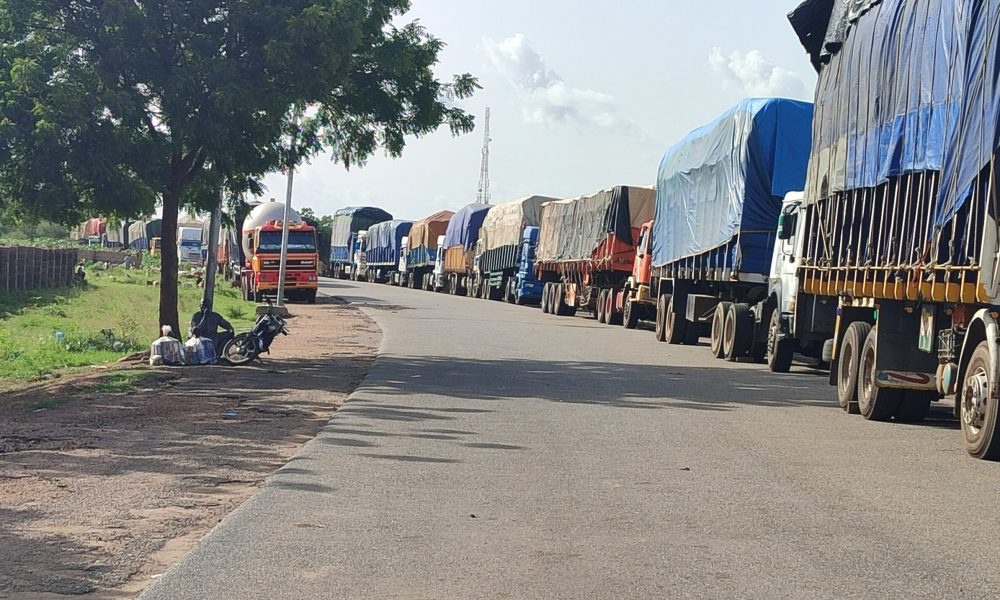News
Woe, lamentation continue over closure of Nigeria-Niger Border

The prolonged closure of the border between Nigeria and Niger has cast a deep shadow over the lives of many.
Trade between the two nations has been on hold because of sanctions due to the July coup that ousted Muhammad Bazoum, who was democratically elected as Niger’s President in February 2021.
The border shutdown, which came as a result of the failed attempts by the ECOWAS to restore Bazoum, has proven to be a devastating blow for those living in the border region.
In an exclusive report by Trust Radio, it was revealed that residents of Illela LGA in Sokoto state, Jibiya and Kwangalam in Katsina state, and Maigatari in Jigawa state have been plunged into abject poverty, with small business owners experiencing financial ruin and the border closure taking a heavy toll on the local economy.
Aliyu Abdullahi Saídu, a grain merchant in Illela market, painted a grim picture of the border closure’s impact.
“Before the border was shut I was able to sell between 25 to 30 bags of grains daily. However, I now struggle to sell mere 10 to 13 bags a day, and the dire consequences have been felt far and wide.
“Small business owners have had to deplete their capital reserves, while those who used to sell on credit are now forced out of the business entirely,” he said.
Aliyu further highlighted that the closure has led to a direct increase in the price of locally processed rice, further compounding the misery of the local population.
Lawal Planner, Chairman of the National Union of Road Transport Workers (NURTW) Kwangalam branch, Katsina, said people no longer travel as they used to.
This, he said, has pushed them out of business, making it impossible to provide for their families as they once did.
Sirajo Maida, known as Sirajo Dan Agaji, from Jibiya, the official border town between Nigeria and Niger Republic, lamented that besides dealing with inflation and the lack of business activities due to the border closure, the region faces a grave threat from insecurity, brought about by the activities of bandits and terrorists.
He appealed to the government and relevant authorities for immediate intervention, as the residents feel trapped, living under constant fear and deprivation.
Bashir Adamu of Maigatari town in Jigawa State, another border community shared that desperate times have led people to resort to unofficial means of conducting business transactions between the two countries.
Goods are being transported using motorcycles through ranches, indicating the lengths to which people are willing to go to make ends meet amidst the hardship.
Dr. Nuruddin Usman Miko, an economist from Kaduna State University (KASU), expressed his concern about the deteriorating conditions of people in the border communities.
Beyond the immediate negative impact on the affected population, he said the protracted border closure would gradually have a significant impact on the Nigerian economy as a whole.
Sule Audi, a Public affairs analyst said, the continuous closure of the Nigeria-Niger border is pushing border communities further into the abyss of poverty and despair.